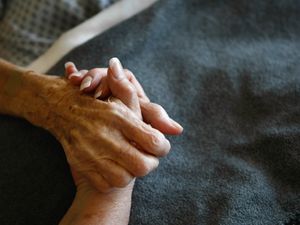Poorest to bear brunt of change
The 2,500 scientists comprising the Intergovernmental Panel on Climate Change (IPCC) emphasise that human activity has caused climate change and that we have, at the very most, just ten years to curb greenhouse gas emissions and prevent catastrophic warming.
The 2,500 scientists comprising the Intergovernmental Panel on Climate Change (IPCC) emphasise that human activity has caused climate change and that we have, at the very most, just ten years to curb greenhouse gas emissions and prevent catastrophic warming.
Coming within a few days of the IPCC's recent report, the tenor of your editorial of November 20 was, to say the very least, disappointing.
Referring to climate change as a "trendy challenge" is unworthy of a major regional newspaper, as is linking the problem with immigration. Stating that "Climate change has not killed a single British citizen" diverts attention from the fact that, although it will affect the UK population (and indeed is already doing so), the greatest impact of climate change will be on those developing countries whose carbon emissions are negligible compared to ours.
Already, the world's poorest people are suffering the effects of climate change, ranging from mudslides to hurricanes and droughts, and, according to one estimate, it is responsible for 150,000 deaths each year.
Rather than playing down climate change, the world's Press should be urging governments to act positively and effectively while there is time.
Our own government is the first in the world to introduce a Climate Change Bill, which will shortly be debated in Parliament, prior to the UN climate change meeting in Bali.
Laudable though the Bill is, it falls below what is necessary. It needs to commit the UK to reducing carbon emissions by 80 per cent by 2050, rather than by 60 per cent as currently proposed; there must be mandatory reporting of all (not just some) carbon emissions for which UK companies are responsible; aviation and shipping must be included in the reduction targets; and, instead of the proposed five-year targets, which leave too much scope for cuts to go off track, annual milestones would help ensure cuts happen as agreed.
Across the world, the climate change threat makes the poor vulnerable. In the UK our children, grandchildren and unborn generations are vulnerable. Surely, these issues are ones we should all be writing to our MPs about and upon which our newspapers should be campaigning?
Roger Poole, Wimborne Road, Wolverhampton.





